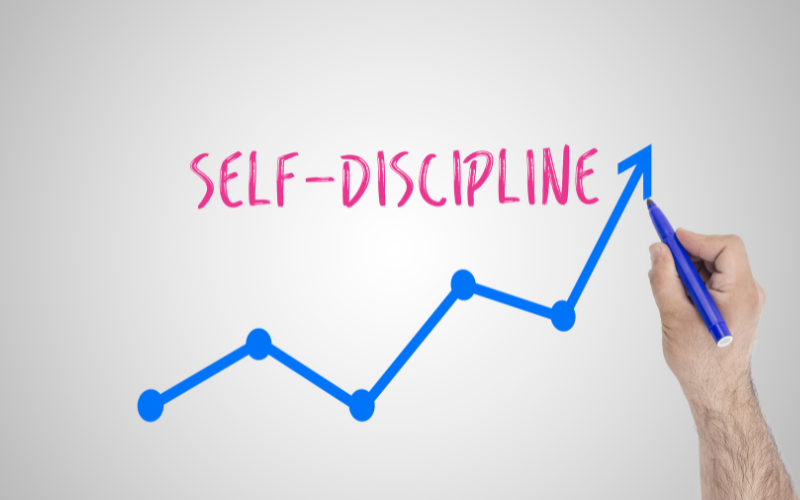In the intricate web of human interactions, certain undesirable behaviors can significantly affect our personal and professional lives. Recognizing and understanding these behaviors is crucial for fostering healthy relationships, achieving success, and maintaining emotional well-being. This article dives deep into the 7 undesirable behaviors, their consequences, and strategies to navigate through them. Buckle up and join us on this journey to unravel the complexities of human conduct.
1.Selfishness
The Me-First Attitude
Selfishness is one of the 7 undesirable behaviors that can hinder personal and professional growth. It is characterized by an excessive focus on one’s own needs, desires, and interests, often at the expense of others. This me-first attitude can manifest in various ways, such as taking credit for others’ work, prioritizing personal gain over teamwork, or disregarding the feelings and needs of those around us.
Consequences of Excessive Selfishness
Excessive selfishness can have several negative consequences on our lives. Firstly, it can damage our relationships, as people may perceive us as untrustworthy or uncaring. Secondly, it can hinder career growth, as colleagues and supervisors might view us as uncooperative or unreliable. Lastly, excessive selfishness can lead to isolation, as people may distance themselves from us due to our lack of empathy and consideration for others.
Strategies for Overcoming Selfishness
To overcome selfishness, it is essential to develop empathy and compassion for others. Some strategies to achieve this include:
- Practice active listening: Give your undivided attention to others when they speak, and avoid interrupting or imposing your opinions.
- Put yourself in others’ shoes: Try to understand their feelings, needs, and perspectives.
- Be grateful: Express gratitude for the help and support you receive from others.
- Share and collaborate: Foster a spirit of teamwork and recognize the contributions of others.
- Engage in acts of kindness: Perform random acts of kindness or volunteer your time to help others.

2. Dishonesty
The Lies We Tell
Dishonesty, another of the 7 undesirable behaviors, is the act of deliberately concealing or distorting the truth for personal gain or to avoid negative consequences. Dishonesty can take many forms, such as lying, cheating, or stealing. While some lies might seem harmless, dishonesty can have far-reaching consequences that erode trust and damage relationships.
Effects of Dishonesty on Relationships
Dishonesty can have several detrimental effects on our relationships. When people discover our dishonesty, their trust in us may be shattered, leading to feelings of betrayal and resentment. This loss of trust can be challenging to rebuild and may result in the breakdown of friendships, romantic relationships, and professional collaborations. Additionally, habitual dishonesty can lead to a cycle of lies, where we feel compelled to tell more lies to cover up previous ones, further damaging our credibility and reputation.
Building Trust Through Honesty
To counteract dishonesty and build trust, it is essential to practice honesty in our daily lives. Here are some tips to promote honesty:
- Be accountable: Own up to your mistakes and take responsibility for your actions.
- Communicate openly: Share your thoughts and feelings with others, even when it’s difficult.
- Be reliable: Follow through on your promises and commitments.
- Practice integrity: Align your actions with your values and principles.
- Encourage honesty in others: Create a safe and supportive environment where people feel comfortable sharing their thoughts and feelings without fear of judgment or retribution.
3. Procrastination
-
Understanding the Habit of Delay
Procrastination, one of the 7 undesirable behaviors, is the habit of postponing tasks or decisions that need to be addressed. Often rooted in fear, anxiety, or perfectionism, procrastination can lead to a constant cycle of delay, causing stress and negatively impacting productivity. While occasional procrastination is common, chronic procrastination can have severe consequences on our personal and professional lives.
Consequences of Chronic Procrastination
Chronic procrastination can result in numerous negative outcomes, such as:
- Poor performance: Delaying tasks can lead to subpar results due to insufficient time or effort.
- Missed opportunities: Procrastination can cause us to miss deadlines or fail to capitalize on valuable opportunities.
- Increased stress: The burden of unfinished tasks can create stress and anxiety, affecting our mental health.
- Damaged reputation: Habitual procrastination can harm our credibility and reliability in the eyes of others.
- Lower self-esteem: Constantly delaying tasks can lead to feelings of guilt and self-doubt.
Time Management Techniques to Combat
To overcome procrastination, consider implementing the following time management techniques:
- Break tasks into smaller steps: Divide larger tasks into smaller, more manageable subtasks.
- Set deadlines: Establish clear deadlines for tasks and hold yourself accountable.
- Prioritize tasks: Determine which tasks are most important and focus on them first.
- Eliminate distractions: Create a focused work environment by removing distractions, such as social media or noisy environments.
- Use a timer: Work in timed intervals, such as the Pomodoro Technique, to maintain focus and momentum.
- Reward yourself: Celebrate your progress and accomplishments with small rewards to stay motivated.

4. Negativity
The Power of Pessimism
Negativity, another of the 7 undesirable behaviors, is characterized by a pessimistic outlook and a focus on the negative aspects of life. While it’s natural to experience negative emotions or thoughts occasionally, constant negativity can become a self-fulfilling prophecy, hindering personal growth and affecting our relationships with others.
How Negativity Affects Our Lives
Persistent negativity can have several detrimental effects on our lives:
- Lowered mood: Focusing on the negative aspects of life can lead to feelings of sadness, anxiety, or depression.
- Impaired relationships: Negativity can strain relationships, as others may distance themselves to avoid the emotional drain.
- Hindered personal growth: A negative mindset can limit our ability to recognize opportunities and adapt to change.
- Reduced motivation: Pessimistic thinking can sap our motivation and drive, impeding our ability to achieve our goals.
5. Cultivating a Positive Mindset
To counteract negativity and cultivate a positive mindset, consider these strategies:
- Practice gratitude: Focus on the positive aspects of your life by maintaining a gratitude journal or expressing appreciation to others.
- Surround yourself with positivity: Engage with uplifting people, activities, and environments that inspire and energize you.
- Reframe negative thoughts: Challenge negative beliefs and reframe them into more constructive, positive thoughts.
- Set realistic expectations: Recognize that setbacks are a natural part of life and adopt a balanced, realistic perspective.
- Develop healthy coping mechanisms: Learn to manage stress and negative emotions through techniques such as meditation, exercise, or therapy.
6. Aggression
The Roots of Aggressive Behavior
Inconsideration, another of the 7 undesirable behaviors, is the act of disregarding the feelings, needs, or concerns of others. Inconsiderate behavior can manifest in various ways, such as interrupting conversations, neglecting commitments, or failing to acknowledge others’ contributions. This lack of empathy and understanding can strain relationships and hinder personal growth.
Effects of Inconsiderate Behavior on Relationships
Inconsiderate behavior can have several detrimental effects on relationships:
- Damaged trust: Disregarding others’ needs can erode trust and leave them feeling unsupported or undervalued.
- Increased conflict: Inconsiderate behavior can lead to misunderstandings, resentment, and tension in relationships.
- Isolation: People may distance themselves from those who consistently display inconsiderate behavior, resulting in loneliness.
- Hindered personal growth: Inconsiderate behavior can limit one’s ability to develop empathy and emotional intelligence, key components of personal development.
Developing Empathy and Compassion
To overcome inconsideration and cultivate empathy and compassion, consider these tips:
-
- Practice active listening: Pay close attention to others when they speak, asking open-ended questions and providing feedback.
- Cultivate emotional intelligence: Learn to recognize, understand, and manage your emotions, as well as those of others.
- Be present: Focus on the present moment and engage fully in your interactions with others.
- Practice perspective-taking: Try to understand others’ viewpoints, even if they differ from your own.
- Engage in acts of kindness: Perform random acts of kindness or volunteer your time to help others, fostering empathy and compassion.

7. Indecisiveness
Indecisiveness, the last of the 7 undesirable behaviors, is the inability to make timely and confident decisions. It often stems from fear of failure, perfectionism, or a lack of self-confidence. While some degree of caution is necessary when making decisions, chronic indecisiveness can hinder personal growth and negatively impact various aspects of our lives.
Consequences of Indecisiveness
Persistent indecisiveness can lead to several negative outcomes:
- Missed opportunities: Delaying decisions can result in lost opportunities, as circumstances may change or others may make decisions without our input.
- Increased stress: The pressure of unresolved choices can create anxiety and stress, affecting our mental health.
- Damaged credibility: Habitual indecisiveness can harm our reputation, as others may perceive us as unreliable or lacking confidence.
- Hindered personal growth: Indecisiveness can prevent us from taking risks and learning from our experiences, limiting our personal development.
Tips for Becoming Decisive
To combat indecisiveness and become more decisive, consider the following strategies:
- Set clear goals: Define your objectives and prioritize them to provide direction for your decision-making.
- Gather information: Research and gather relevant information to make informed choices.
- Limit options: Narrow down your choices to a manageable number, reducing the complexity of your decisions.
- Set deadlines: Establish time limits for making decisions to avoid excessive deliberation.
- Accept imperfection: Recognize that no decision is perfect, and it is more important to learn from our choices than to strive for perfection.
- Trust your instincts: Develop confidence in your intuition and use it as a guide when making decisions.
- Reflect on past decisions: Analyze your past choices, identifying patterns and areas for improvement to inform future decision-making.




